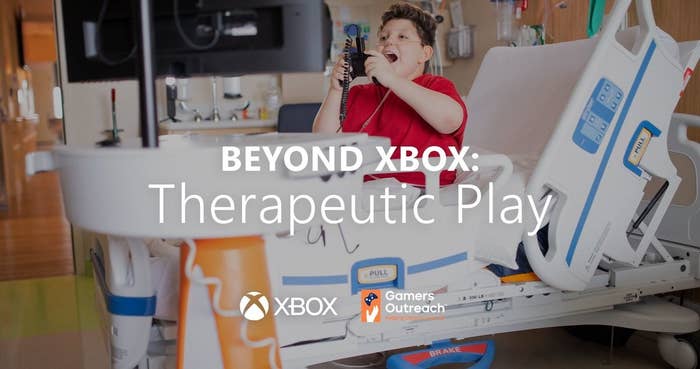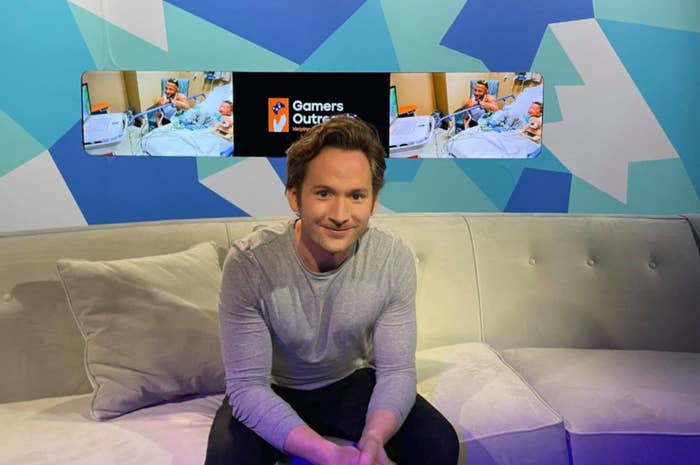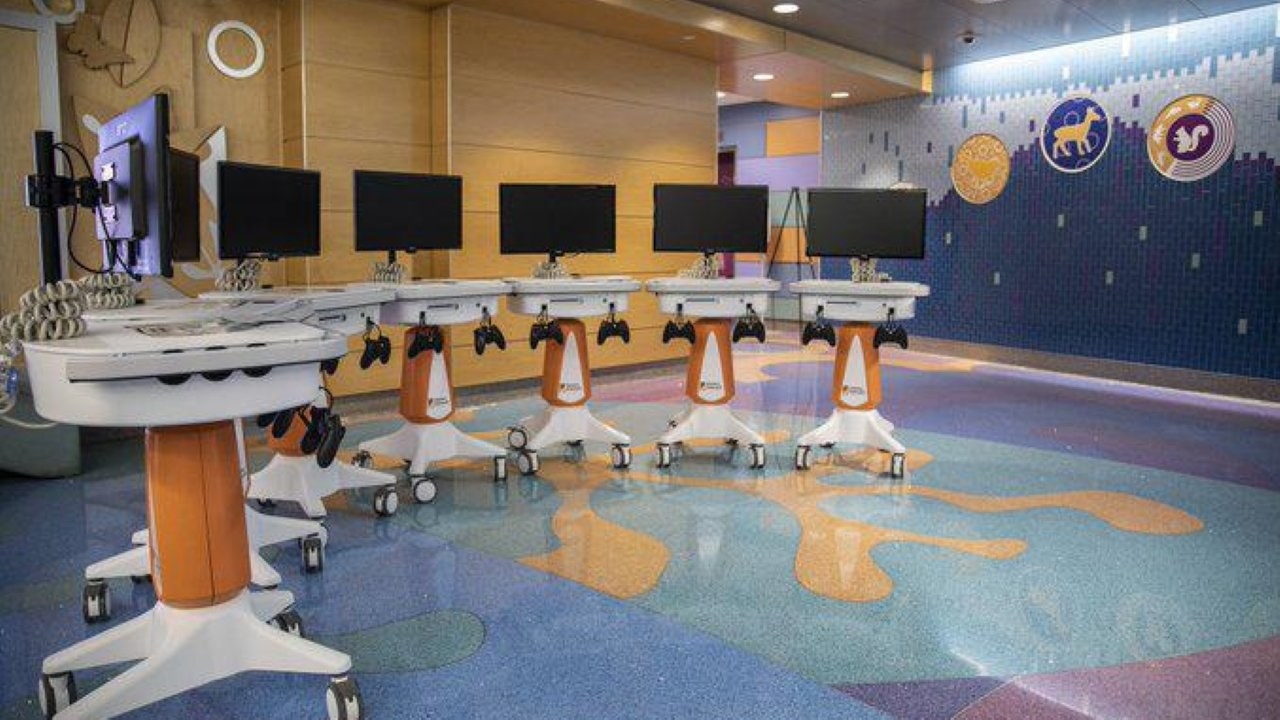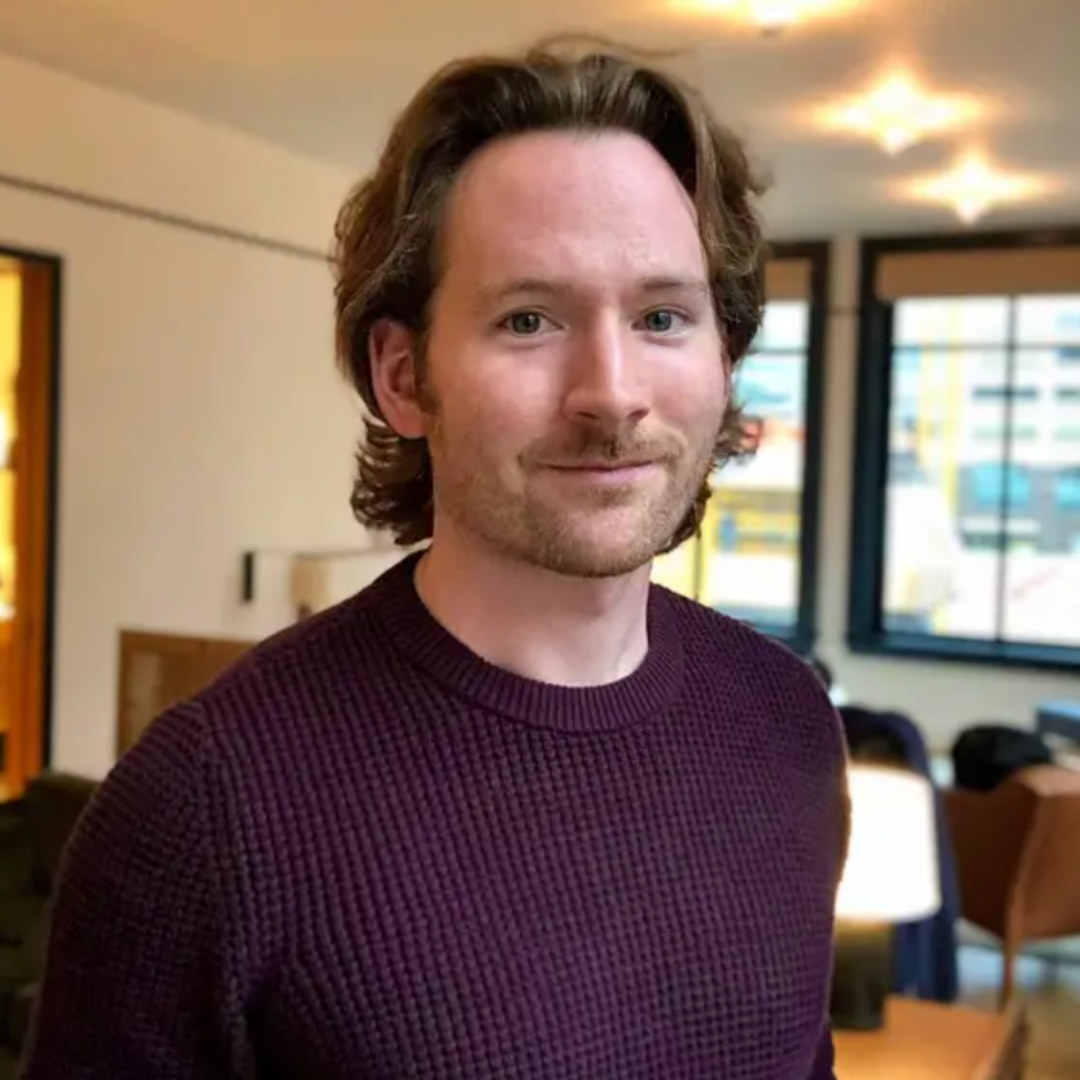Gamers Outreach is a charity with a tough, but brilliant, mission – making gaming accessible to kids in hospitals. So far, they've made this possible in over 300 hospitals, through initiatives like their portable gaming kiosks (GO Karts) and successful fundraising events.

The charity just partnered with Xbox for a new initiative to connect gamers in hospitals across the world. We got a chance to sit down and talk about the partnership, how the charity started, and all things gaming with the founder of Gamers Outreach himself – Zach Wigal.

Gamers Outreach has the goal of bringing entertainment and relief to children in hospitals by making video games accessible to them. Zach began by walking me through how Gamers Outreach began 15 years ago.
At the time, Zach was a high school student and was passionate about organising gaming tournaments, but one of his events (a Halo 2 tournament) got shut down by a police officer. The officer thought video games were “corrupting the minds of the American youth.”
“I was really frustrated by that. I’d grown up playing games, and there were always stereotypes and misconceptions around games and their influence on the community," he told us. "So I thought it’d be productive to organise a gaming event for charity to illustrate the actual positive effects of when gamers come together and take part in something they’re excited about.”
"I thought it’d be productive to organise a gaming event for charity to illustrate the actual positive effects of when gamers come together and take part in something they’re excited about."
In that process, he had discovered that his local hospital was having a hard time providing the kids with activities to do. As a gamer, he thought to himself: why don’t we give the kids video games?
Games consoles are unique in a way other activities aren’t – they’re available at scale. If you’re five, 10, or 15 years old you have just as much fun on an Xbox as anybody. So if a hospital could manage gaming devices, all the kids could have access.
What started at his local hospital soon spread to a neighbouring one, and his work helped things go further. "I was working in marketing for the games industry, so I was flying around the country, he recalled. "My friends had seen me post about the work in the hospitals and were like 'That’s so cool, do you think we can do that in a hospital In California, Austin, etc?’”

Fast forward fifteen years and his charity now helps 330 healthcare facilities around the world, and they’re slowly starting to go beyond the US.
Zach has faced a few hurdles, the first – and biggest – being that it’s an expensive proposition, and hospitals need to prioritise their resources on research and care. There’s not a lot left over to reinvest into the hospital itself, so it’s hard to justify spending on entertainment, let alone on video games. “That’s why Gamers Outreach is a non-profit, so when gamers donate, we can invest it into these hospitals.”
The second issue is that even if they’ve got the budget or a donor like Gamers Outreach, it’s difficult to manage all these devices across hundreds of rooms. Imagine installing a gaming console in each room of the hospital – somebody has to take responsibility to manage them.

“The third challenge is related to the second, in that health workers have very limited time to interact with patients,” he told us. “Even if an Xbox console is in a playroom, it can take 15 minutes at minimum to set it up at a kid's bedside." That’s why they've built the GO Karts as portable devices for games consoles; to help ease management and the time it takes to set them up.
Each GO Kart – or Gamers Outreach Kart – unit has a monitor, games console, controllers, and games. They’re secure to help prevent things from getting lost and so staff can easily wheel them from room to room. “It’s super helpful for hospitals that don’t have the infrastructure to make gaming content easily available,” Zach said.

They’ve been building them since 2009, and it’s the initiative they’re most known for. After the initial development stage, which started with repurposed medical products, the team designed each part of the kart and engaged with Xbox to get feedback.
Zach highlighted the importance of companies like Xbox to their charity: "we’re almost like a distributor for their talented work, they’re the ones making the games and we’re going into these nuanced environments to help healthcare staff facilitate games existing.”
Xbox had been supportive of Gamers Outreach’s work for years, giving them hardware and software to use. Other game publishers have also helped by donating games to provide to the hospitals. “I’d like to think that Gamers Outreach helps inform game developers, in that their games are now being used in these contexts of hospital environments."
“I’d like to think that Gamers Outreach helps inform game developers, in that their games are now being used in these contexts of hospital environments."
Connection is at the heart of their work. Zach, who games with his brother on opposite ends of the country, knows that gaming gives kids access to the outside world. He recalled one instance that made a strong impression on him.
We had a child who’d been in hospital in Atlanta for about a year, and his family lived two hours away, only able to visit on weekends. Gaming was one of the only activities that could facilitate interaction in a sustained way. With "Minecraft," he could play with his school friends and his family. Staff were actively encouraging him to play so he could connect with them regularly!
It’s results like these that make Zach so passionate about his work.
Gamers Outreach are always striving to make gaming more accessible, approaching it from the mindset of being gamers themselves – the entire team plays video games. "Gaming can speak to everyone, and if you can enable hospitals to manage and provide it, it’s going to make a huge impact on these kids and their families' lives. It’s why we’re always thinking about how we can improve, and have announced two new initiatives – Save Point and Portal.”
Portal is their software platform that helps hospitals manage gaming on PCs. Save Point is a little different from their other initiatives. Zach said it came about as a byproduct of playing Final Fantasy 7 and seeing those item-dispensing vending machines in the game.
Each of our Save Points distributes things like game codes and swag items, that sort of thing. It’s something for the kids to look forward to and they can leave the hospital with something fun as a reward for being genuinely courageous through their treatment.

Zach’s commitment to helping kids and the hospital staff is genuinely inspiring, and it’s clear they won’t be stopping any time soon. “As video game enthusiasts, we want to do as much as we can. Every time I come into work, it’s like logging into an MMO where it’s a little grindy at times, but each day we make just a little more progress," he said. "We realised that you’ve got to be a gamer to do this job. If we’re not the ones to do it, no one will, because we know and believe in the benefits of gaming. It’s fun and we’re grateful we get to do it and make this difference because we’re obsessed with this problem – this is our life's work. ”
"As video game enthusiasts, we want to do as much as we can. Every time I come into work, it’s like logging into an MMO where it’s a little grindy at times, but each day we make just a little more progress."
Zach told us how his work not only benefits the kids, but the hospitals themselves…
From the number of stories I have about our work, there’s one where a child had really severe burns on his arm, and every few days nurses had to change his bandages. It got to the point where he was really anxious about the process because it was so uncomfortable. I don’t like taking off a band-aid, so I can’t even imagine how difficult it was. Six nurses were having to hold him down to complete the procedure.
But someone found out he liked to play Lego Batman and wheeled in one of our GO Karts. Those six nurses helping him went down to just two because he was distracted by the game. He was so focused on playing the game that one nurse was doing the bandage while the other helped hold the other end of his controller up.
The kid was less anxious, the healthcare staff had an easier time doing their job and actually, there’s this economical benefit, because those other four staff members were free to help elsewhere. It’s not until you’re in these environments that you realise games make this tangible impact.
As a fellow Halo fan, I had to end things by finding out his favourite game in the series. He revealed that the third instalment took the crown for him, and was the game that really got him into Xbox. It came down to the multiplayer maps, and it just came at a time in my life when all my friends were playing it, so it was a social experience."


